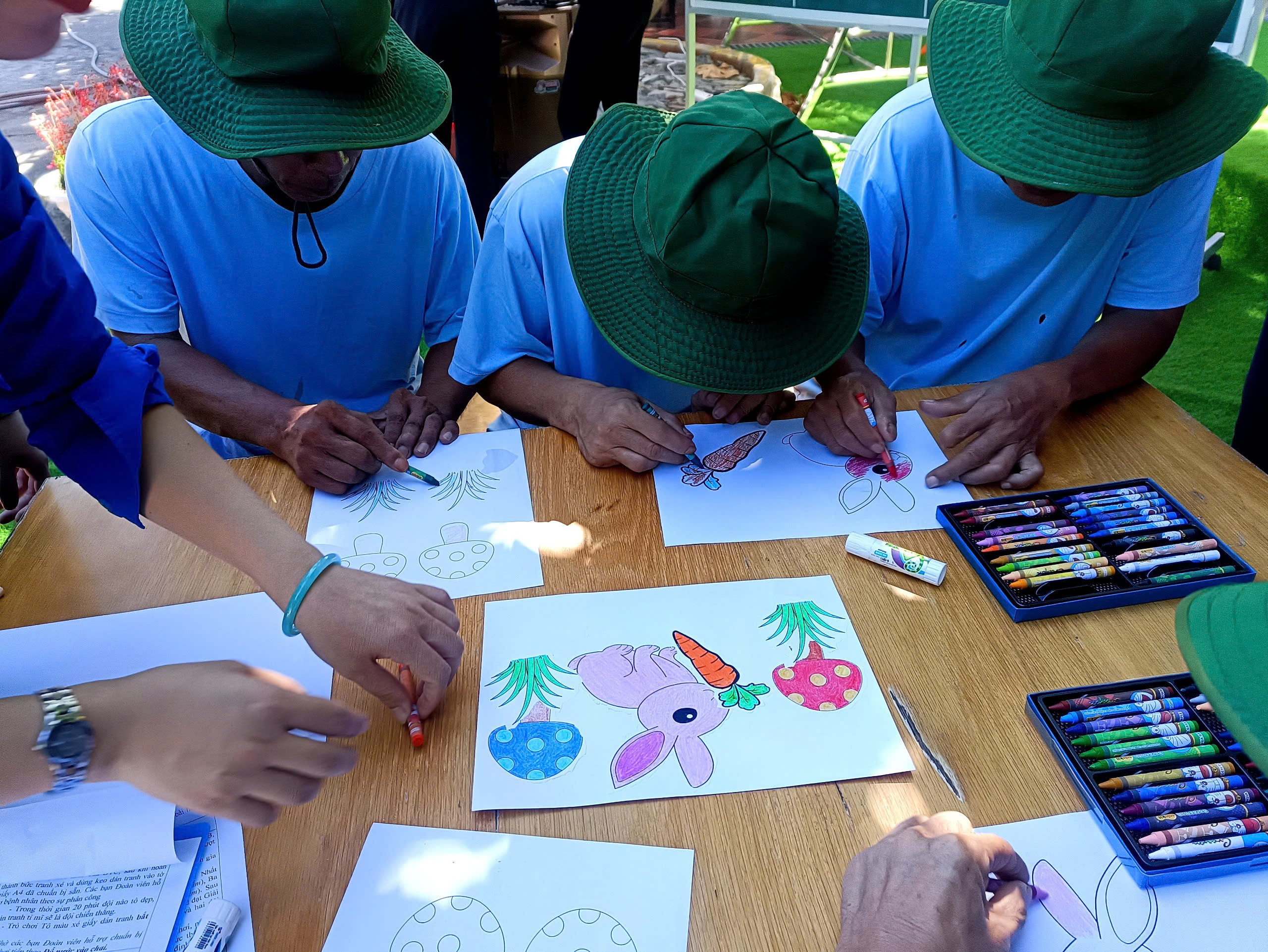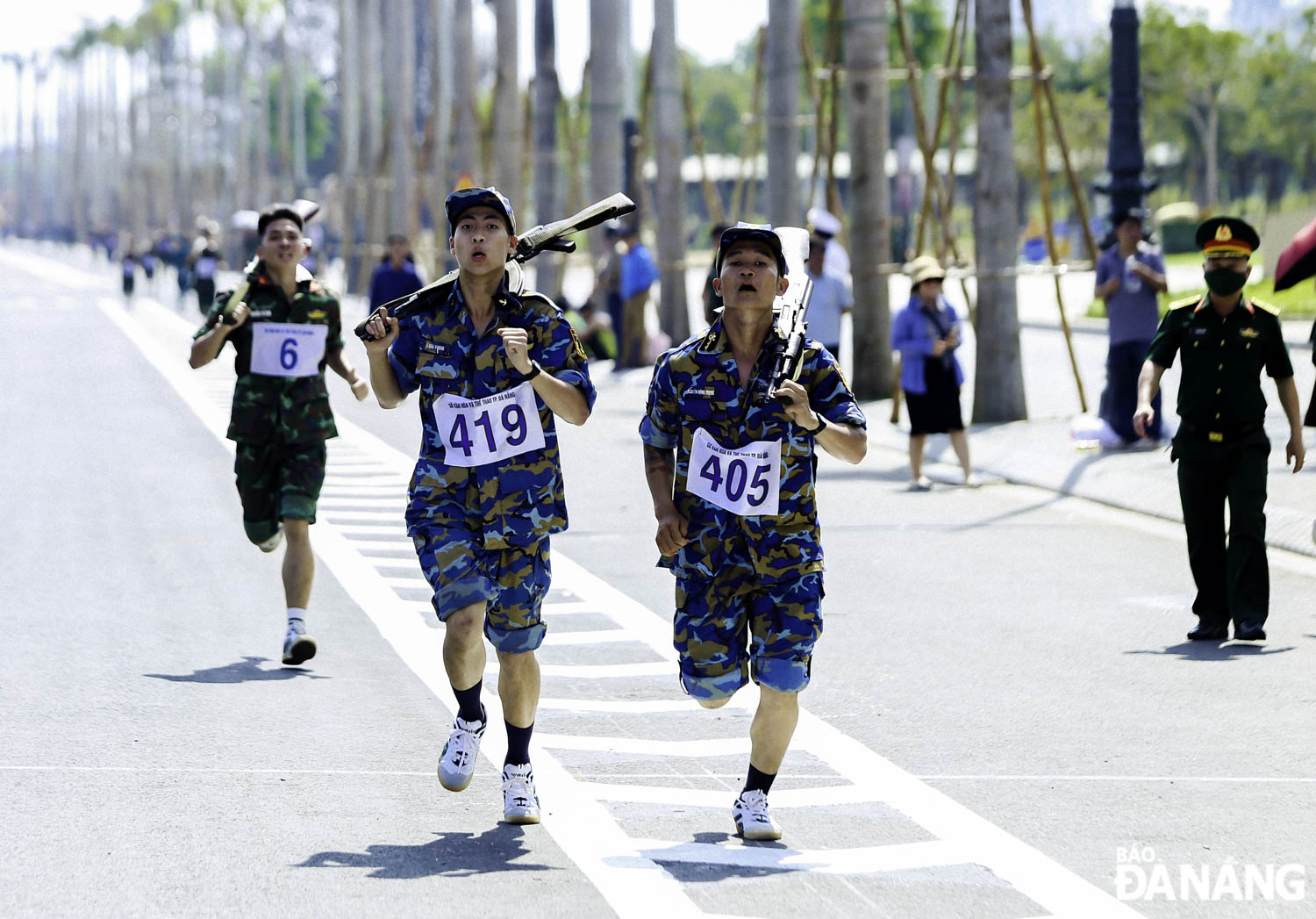Da Nang- Common house of kindness and love
Da Nang has 14 social assistance facilities, including 2 public and 12 non-public facilities, caring for a total of nearly 1,000 social protection beneficiaries. Thanks to the city’s social welfare policies and effort exerted by these units, the disabled, the elderly, orphans and other disadvantaged people have been cared for in guaranteed conditions with improved living standards.
 |
| Disadvantaged people at the Da Nang Mental Health Nursing Centre are cared for and nurtured with fund from the state budget. Photo: XUAN SON |
1. Mr. Nguyen Sau,72, was brought to the Da Nang Mental Health Care Centre in May 2001, when the unit's headquarters was still located in An Khe Ward, Thanh Khe District. At that time, he was admitted in an unconscious state, unable to remember his relatives and his hometown name. All information was vague.
After nearly 25 years of dedicated care from the center's staff, Mr. Sau's physical health has gradually stabilized. Now, at the old age, he has become a familiar part of this shelter. Mr. Sau is currently one of the 370 cases being cared for at the Da Nang Mental Health Care Centre.
According to Mr. Tan Thanh Vu, the Director of the Da Nang Mental Health Care Centre, since 2021, the Centre has switched to become one of the first units to follow the public service model in the field of social protection. Accordingly, the Da Nang People's Committee has authorised the Department of Labour, Invalids and Social Affairs to order the provision of public career services from the centre.
According to the Da Nang Department of Labour, Invalids and Social Affairs, for public units such as the Social Protection Centre and the Mental Health Care Centre, Decision No. 28/2020/QD-UBND dated August 19, 2020 adopted by the Da Nang People's Committee promulgating regulations on prices for public career services using the State budget in the field of labour - war invalids and social affairs on social assistance is a turning point. There, subjects with particularly difficult circumstances are cared for and nurtured in conditions of guaranteed quality, more effectively from the municipal budget.
Mr. Vu shared that since the introduction of public career services according to the above-mentioned policy, the norms and standards of care have increased, improving the quality of life of people with mental illness. In particular, with the changed awareness of mental illness, the unit has drastically innovated the way of caring, serving, improving the spiritual and physical life of subjects in accordance with the actual situation and the requirements of ordering standards.
For the time being, mentally-ill people participate in activities according to strict procedures every day. Rehabilitation activities are promoted. These people participate in diverse activities including occupational therapy, physical therapy, culture, arts, physical education, and sports. Medical care is carried out regularly and screening for accompanying diseases is enhanced for timely intervention, and meals with rich nutrition is ensured for them. The environmental landscape with a clean and friendly living space is ensured. Up to now, 98% of the beneficiaries at centres participate in daily activities to maintain stable mental health.
2. In the summer of 2001, a newborn baby was found abandoned at a pagoda in the city in a state of congenital disability. After the relevant authorities completed the admission procedures, the child was taken to the Da Nang Red Cross Orphanage Centre for care and has remained at this shelter until now.
After more than 23 years, the baby of that day is now a young man T.V.H.
At the age of 24, H. is considered the eldest brother of this orphanage. With a disability, hydrocephalus and paralysis, he cannot develop normally like many of his peers. In the eyes of the centre’s staff, H. still look like a baby, always receiving care, protection and love in his daily life.
In aanother case, baby girl T.Y.N, 4, was abandoned at the Da Nang Maternity and Pediatrics Hospital, and was admitted to the Da Nang Red Cross Orphanage Centre. The little girl has so far undergone 3 colostomy surgeries, suffering from Down syndrome and a pancreatic tumor.
These are two of the 21 orphans being cared for at the Red Cross Orphanage Centre. Here, they enjoy humane policies from the city’s authorities and are cared for by many individuals and groups with kind hearts. There are the city budget-funded food expenses of VND 2 million/month and VND 1.6 million /month for each child aged under and over 4 respectively. They are vaccinated regularly and cared for, treated for illnesses, and given meals according to the set menu.
According to Mr. Huynh Van Hau, the Director of the Red Cross Orphanage Centre, the unit currently has 7 people taking on the role of nannies and caregivers, divided into 2 shifts per day to take care of the children. They even take turns staying at the hospital in case a child needs treatment.
“Caring for and raising orphans, more than half of whom are disabled, is always a difficult task at the centre. However, the advantage is that we have the patience, dedication and love from the staff,” Mr. Hau shared.
In that team, there are nannies such as Nguyen Thi Tanh, Nguyen Thi Van, Nguyen Thi Sau who have been working at the shelter since 1998.
Outstandingly, doctor Ho Dac Hanh volunteered to work at the centre after retiring from a local hospital. In addition to the State budget, the cooperation of the community, philanthropists and the unit's great efforts in calling for support are factors that have allowed the Red Cross Orphanage Centre to operate effectively for a long time since1995.
As reported by Director of the Da Nang Department of Labour, Invalids and Social Affairs Nguyen Dang Hoang, every year, this agency coordinates with relevant units to inspect and examine the implementation of legal regulations on children's rights, and prevention of child abuse and injuries at facilities to strengthen management and overcome shortcomings in the implementation process.
Along with that, the department usually organise training courses, professional development, and improve the capacity of child care workers at facilities on the work of preparing admission records, knowledge and skills on child protection and care.
“For rehabilitation and labor activities, facilities organise rehabilitation activities for the disabled and the elderly. Children are taught about culture, vocational training, and career guidance so as to help them develop physically, intellectually, and personality and integrate into the community in accordance with each child's age and health. In the case of children of school age, the facilities create conditions for them to go to schools in the city.”, Mr. Hoang said. It is this comprehensive care and nurturing work that has brought to difficult circumstances a loving home in the coastal city.
Reporting by XUAN SON - Translating by A.THU








